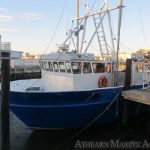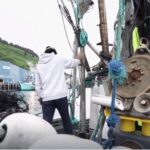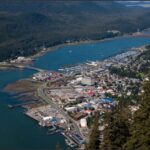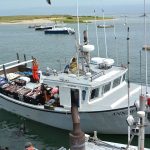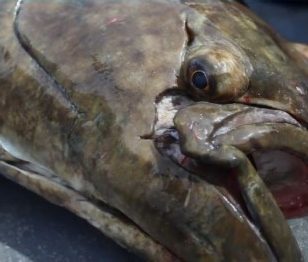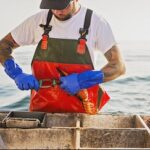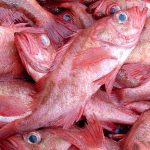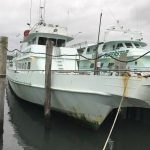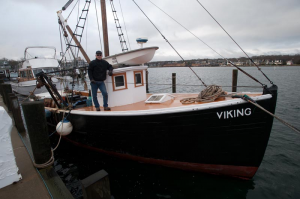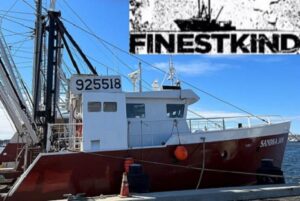Tag Archives: farmers and fishermen
Farmers, Fishermen & the Far-Right: An Unlikely Alliance in Rural Europe
 Farmers and fishermen in rural Europe form an unlikely alliance with the far-right to protest against globalization, immigration, and policies threatening their livelihoods. This complex narrative unveils the struggle for survival, identity, and sovereignty in an ever-globalizing world. In the heart of France’s rural expanse, a surprising alliance is taking shape, one that threads through the quiet towns across Europe and stretches its roots deep into the soil of global discontent. Farmers, the bedrock of our sustenance, find themselves in an unlikely camaraderie with fishermen and factions of the far-right, united not by ideology but by a shared sense of siege. more, >>click to read<< 07:03
Farmers and fishermen in rural Europe form an unlikely alliance with the far-right to protest against globalization, immigration, and policies threatening their livelihoods. This complex narrative unveils the struggle for survival, identity, and sovereignty in an ever-globalizing world. In the heart of France’s rural expanse, a surprising alliance is taking shape, one that threads through the quiet towns across Europe and stretches its roots deep into the soil of global discontent. Farmers, the bedrock of our sustenance, find themselves in an unlikely camaraderie with fishermen and factions of the far-right, united not by ideology but by a shared sense of siege. more, >>click to read<< 07:03
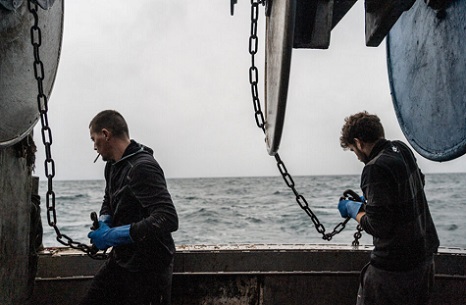
Farmers and Fishermen: In the Sweat of Their Brow
I tried to put my finger on the pulse of the world in order to understand what ties these farmers to their land and these fishermen to the sea. I went wherever life erupts: to a pasture where a farmer slowly prods his cattle along, into the shade of a stable… 3PM. I embark for the first time on board of the trawler Alcyon 2. Cézembre and Samy are mending the fish nets, while Thierry begins to maneuver. The anchor is raised. The lights of the port fade away little by little. In the cabin, Samy is brewing 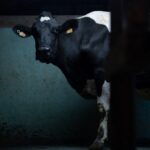 coffee. The down comforters are laid out for the night. 3AM. The sound of metal clanking under the chains. Samy and Cézembre take a few seconds to slip on their fishing gear before heading back to the stern. Back on land, at the La Vallée café in Quintin. The oldest of the farmers is leaning against the counter, a scarf pulled over his head. He is a regular. This is the local watering hole. The morning light timidly pierces the mist. Photos, >click to read< 17:54
coffee. The down comforters are laid out for the night. 3AM. The sound of metal clanking under the chains. Samy and Cézembre take a few seconds to slip on their fishing gear before heading back to the stern. Back on land, at the La Vallée café in Quintin. The oldest of the farmers is leaning against the counter, a scarf pulled over his head. He is a regular. This is the local watering hole. The morning light timidly pierces the mist. Photos, >click to read< 17:54
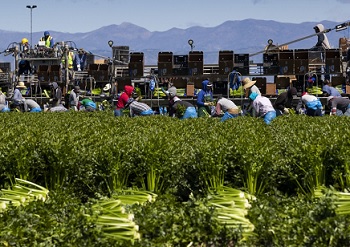
Coronavirus: In Photo’s – The Essential Work of Farmers (and Fishermen)
Despite the many coronavirus lockdowns around the world, people still need to eat, and agricultural work continues, but with many new challenges. Some crops that were ready to harvest are being plowed under or allowed to rot in the fields, because seasonal workers are restricted from traveling, and many buyers have temporarily closed. Unwanted flowers are being used as feed for livestock, and some fishermen are donating their catch to needy families. The farm workers who do have jobs worry about possible exposure to the virus, and have little protection, but many are glad to have a paycheck right now. In some places, the demand for organic produce has gone up, and farmers are working to get their crops to smaller markets as well as larger warehouses. 30+ photo’s, >click for more< 14:14
March 1 is Tax Deadline for some Farmers and Fishermen
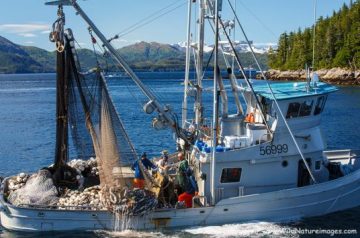 Most Americans think of April 15 as the tax deadline, but for many farmers and fishermen, there’s another deadline and it’s almost here. Wednesday, March 1 is the 2017 deadline for taxpayers with income from farming and fishing to file their 2016 Form 1040 and pay the tax due to avoid making estimated tax payments. This rule generally applies if farming or fishing income was at least two-thirds of the total gross income in either the current or the preceding tax year. Since 2014, IRS Direct Pay has offered individual taxpayers an easy way to quickly pay the tax amount due or make quarterly estimated tax payments directly from checking or savings accounts without any fees or pre-registration. Continue reading the rest here with external links 13:55
Most Americans think of April 15 as the tax deadline, but for many farmers and fishermen, there’s another deadline and it’s almost here. Wednesday, March 1 is the 2017 deadline for taxpayers with income from farming and fishing to file their 2016 Form 1040 and pay the tax due to avoid making estimated tax payments. This rule generally applies if farming or fishing income was at least two-thirds of the total gross income in either the current or the preceding tax year. Since 2014, IRS Direct Pay has offered individual taxpayers an easy way to quickly pay the tax amount due or make quarterly estimated tax payments directly from checking or savings accounts without any fees or pre-registration. Continue reading the rest here with external links 13:55
Working the system makes the system unworkable, by Ronald Smolowitz
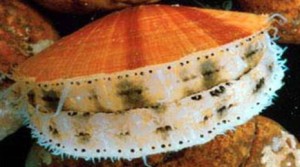 As the owner of Coonamessett Farm in Falmouth and a partner at the Woods Hole Oyster Co., I spend as much time navigating regulatory hurdles as I do tending the farm or going to sea. Many farmers and fishermen have similar fights with overbearing bureaucracy, something likely to become more common as the noose of government regulations tightens.,,Things aren’t much better out at sea. I do a substantial amount of research for the scallop industry, and sustainability is the key reason scallop management is a continued successes. Through a system of rotational management, certain zones are fished while others are left off-limits to allow them to repopulate. Much as with farmland, this system allows the resources to remain sustainable. Read the article, Click here 09:47
As the owner of Coonamessett Farm in Falmouth and a partner at the Woods Hole Oyster Co., I spend as much time navigating regulatory hurdles as I do tending the farm or going to sea. Many farmers and fishermen have similar fights with overbearing bureaucracy, something likely to become more common as the noose of government regulations tightens.,,Things aren’t much better out at sea. I do a substantial amount of research for the scallop industry, and sustainability is the key reason scallop management is a continued successes. Through a system of rotational management, certain zones are fished while others are left off-limits to allow them to repopulate. Much as with farmland, this system allows the resources to remain sustainable. Read the article, Click here 09:47



































